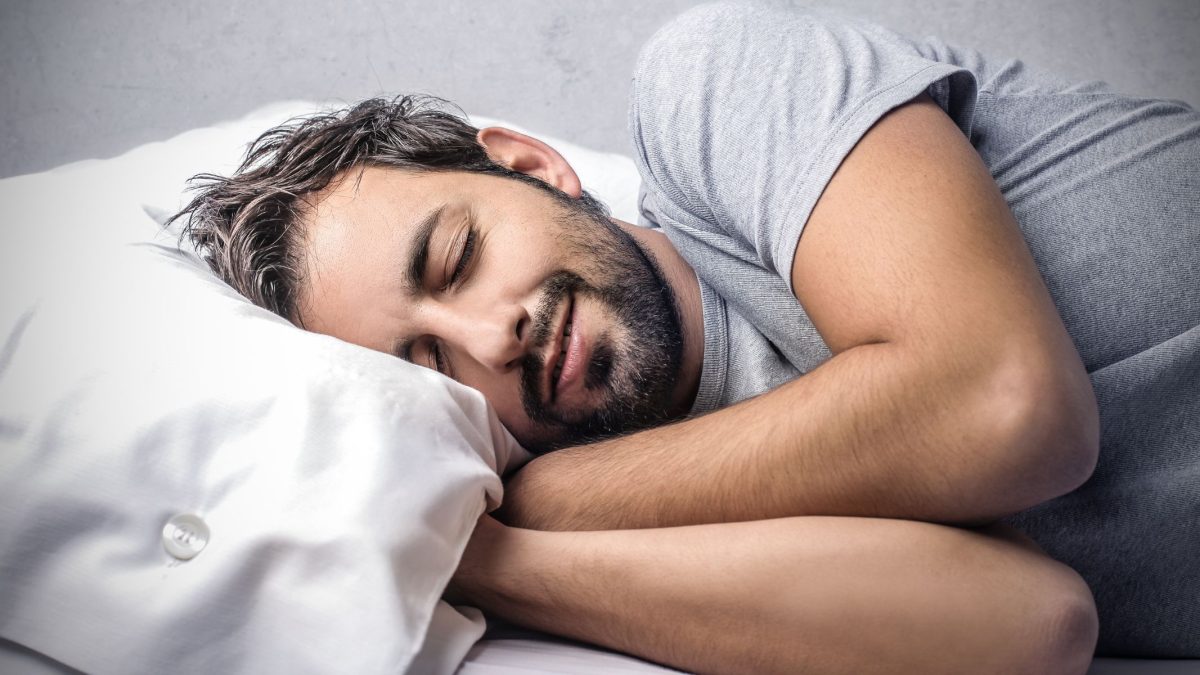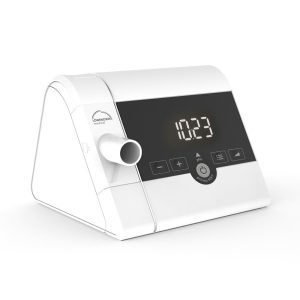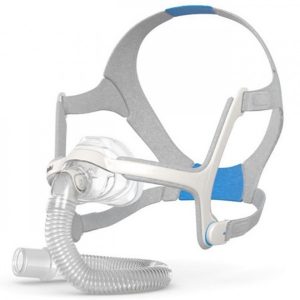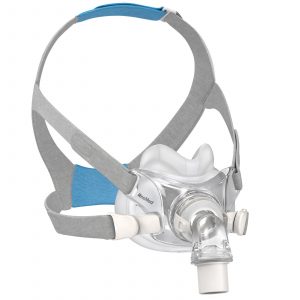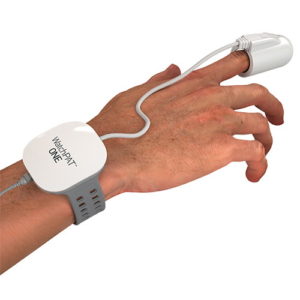Fact Checked
Intus Healthcare’s writers, customer service team, and sleep experts review and ensure this information is accurate.
Last updated on April 2nd, 2024 at 10:18 am
Sleep & Testosterone
Testosterone is a male sex hormone found in both males and females. Hormones are chemical messengers that coordinate various bodily functions and are crucial in the control of metabolism, growth, and sleep.
Male testosterone is responsible for creating sperm, increasing fertility, and supporting other male characteristics, including muscle mass and a deeper voice. Its effects are not limited to the reproductive system as it also affects bone strength, sleep cycles and mood. The amount of testosterone produced can impact sleep duration and stages of sleep. Similarly, poor sleep can affect a person’s level of testosterone.
The normal range of testosterone varies in men and women and changes as we age. Although the hormone is also found in women, males produce much more.
This article will explain the relationship between sleep and testosterone and how to spot if something could be wrong.
How testosterone levels affect sleep
Testosterone helps maintain the balance of other hormones; these include melatonin, cortisol, oestrogen and progesterone. Hormone balance helps to regulate your sleep, how deep you sleep and how quickly you fall asleep. Disruptions to your testosterone level can lead to sleep disturbances.
Low testosterone & sleep?
When testosterone levels are too low, your hormonal balance can be disrupted, leading to poor sleep quality. It may cause you to wake up frequently at night, making it harder to achieve deep, restorative sleep.
Sleep is essential for the body to recover and rejuvenate. When testosterone levels are low, you may wake up feeling fatigued and lacking energy. This can affect your ability to stay alert and focused during the day.
Symptoms of low testosterone
- Decreased libido
- Depression or anxiety
- Problems getting or keeping an erection
- Loss of muscle
- Difficulty concentrating
- Increased body fat
- Hair loss
- Fatigue
- Decreased bone mass
- Memory loss
Does high testosterone affect sleep?
On the other hand, having too much testosterone may also cause sleep problems. Elevated testosterone levels have been linked to increased awakenings and sleep deprivation, making it challenging to maintain quality sleep. High testosterone levels may also boost energy levels, making you feel more awake during the night when you should be sleeping. You might find yourself tossing and turning in bed, unable to relax and wind down. This excess energy can make maintaining a consistent sleep schedule difficult. High testosterone can also contribute to insomnia, a condition where you have difficulty falling asleep or staying asleep throughout the night.
Symptoms of high testosterone
- Acne
- High blood pressure
- High cholesterol
- Kidney conditions
- Liver conditions
- Excessive hair growth
- Increased muscle mass
- Insomnia
- Swelling in the legs and feet

How sleep affects testosterone
The amount of sleep you gain can influence the amount of testosterone produced. Many of the symptoms of low and high testosterone levels are also symptoms of sleep deprivation. So, you may be sleep-deprived, and fixing this problem could improve your symptoms and help your body maintain healthy testosterone levels.
Research on healthy young males found that sleeping less than five hours was linked to a 10-15% decrease in testosterone (1).
Research also suggests that Obstructive Sleep Apnoea (OSA) may contribute to decreased testosterone due to sleep fragmentation and reduced REM sleep (2).
Sleep Apnoea & testosterone
Low testosterone levels have been associated with an increased risk of sleep disorders such as Obstructive Sleep Apnoea. OSA is when your breathing temporarily stops during sleep, leading to frequent awakenings and decreased sleep quality.
Sleep Apnoea is caused by an airway obstruction and is commonly associated with snoring, headaches and cognitive decline (memory loss and poor concentration).
Furthermore, high levels of testosterone have also been associated with worsening sleep-related breathing problems, such as Sleep Apnoea.
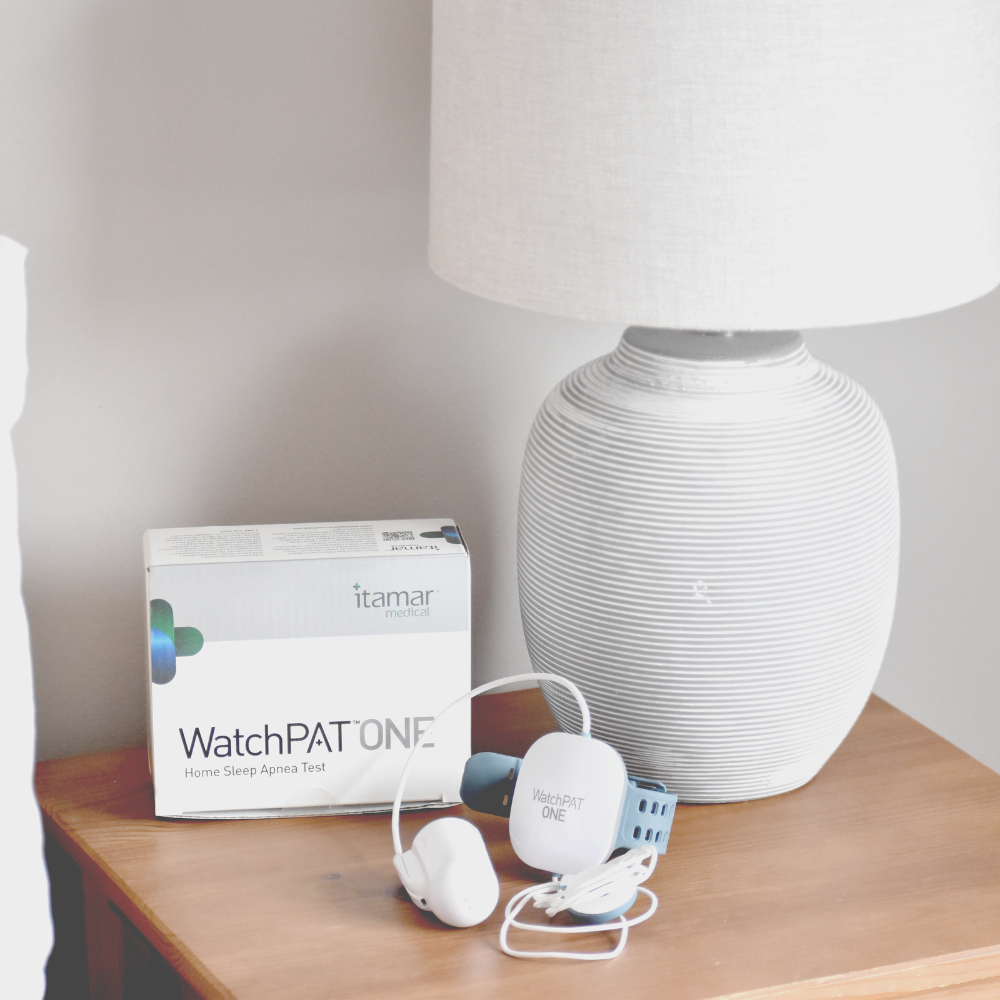
Sleep Apnoea Test
A quick and easy way to confirm if you do or do not have Sleep Apnoea is by taking a sleep test.
The Sleep Apnoea test requires one night of sleep data, and the results are sent to you within two working days. Taking the test puts you closer to understanding if you have overlap syndrome.
Excess testosterone in women
Testosterone levels in women can have a different effect on the body than they do on men. Higher levels of testosterone in women can lead to a condition called hyperandrogenism, which is caused by an increase in the male sex hormones – testosterone, androsterone and androstenedione.
Symptoms specific in women:
- Infertility
- High BMI
- Excess hair growth (hirsutism)
- Depression and anxiety
- Mood swings
- Acne
- Oily skin
- Irregular menstrual cycle
- Male pattern baldness
It’s essential for women experiencing these symptoms to seek medical evaluation and treatment. Identifying and addressing the underlying cause of excess testosterone, such as Polycystic Ovary Syndrome (PCOS) or other hormonal imbalances, can help manage these effects and improve overall health and sleep.
Related article:
Do women need more sleep than men?
How to increase testosterone levels
There are various ways to help increase your testosterone level; here are some natural ways to do so:
- Exercise & weight loss: A study on obese men found increased exercise was more beneficial than a calorie deficit for increasing testosterone (3). Weightlifting and other resistance training have also been found to increase hormone levels (4).
- Diet: Eating a balanced diet with enough protein can help maintain a healthy testosterone level and help with fat loss.
- Increasing Vitamin D: Studies have found that vitamin D supplements can increase testosterone and improve erectile dysfunction (5).
- Managing stress: Higher stress levels can elevate your cortisol, lowering your testosterone. Managing your stress can help balance your hormones. Meditation, exercise and getting enough sleep are all stress-relieving techniques.
- Sleep: Gaining enough sleep is just as important as eating a healthy diet, managing stress and exercising. A 2019 study on 2000 boys found reduced sleep could have contributed to lower testosterone (6).
How to decrease testosterone levels
Reducing testosterone levels naturally can be necessary for some medical conditions or when hormonal balance needs to be adjusted. Here are some natural ways to decrease the hormone:
- Reduce protein intake: Lowering the consumption of high-protein foods, particularly those rich in animal proteins, can help reduce testosterone levels significantly.
- Spearmint tea: Some studies suggest that spearmint tea may have anti-androgenic properties, which can help lower testosterone levels. Drinking it regularly may be beneficial.
- Weight management: Losing excess weight through diet and exercise can help decrease testosterone levels, especially in overweight or obese individuals.
- Limit alcohol consumption: Excessive alcohol consumption can increase testosterone levels, so reducing or eliminating alcohol intake can help lower it.
Conclusion
It’s essential to note that attempting to alter testosterone levels should be done under the guidance of a healthcare provider, especially if it’s for medical reasons. Hormonal balance is delicate, and excessive reduction of testosterone can have unintended health consequences. Testosterone levels can impact the sleep quality of both men and women and should be managed if symptoms begin to affect your life. Whether your testosterone levels are too low or too high, they can disrupt your sleep patterns and make it difficult for you to get the rest you need. Having the right testosterone balance is important to help you sleep well.
If you are concerned about your sleep and believe you could have symptoms of Sleep Apnoea, our Sleep Apnoea home test is a quick way to determine if you do or do not have OSA. Alternatively, you can take our quick online Sleep Apnoea risk test. For any help or advice, contact us.
REFERENCES
- Wittert G. (2014). The relationship between sleep disorders and testosterone in men. Asian journal of andrology, 16(2), 262–265. Available at: https://pubmed.ncbi.nlm.nih.gov/24435056/. Accessed: 08.01.2024
- Kim SD, Cho KS. (2019). Obstructive Sleep Apnea and Testosterone Deficiency. World J Mens Health. Available at: https://www.ncbi.nlm.nih.gov/pmc/articles/PMC6305865/. Accessed: 08.01.2024
- Kumagai H, Zempo-Miyaki A, Yoshikawa T, Tsujimoto T, Tanaka K, Maeda S. (2016). Increased physical activity has a greater effect than reduced energy intake on lifestyle modification-induced increases in testosterone. Available at: https://www.ncbi.nlm.nih.gov/pmc/articles/PMC4706091/. Accessed: 08.01.2024
- Hooper DR, Kraemer WJ, Focht BC, Volek JS, DuPont WH, Caldwell LK, Maresh CM. (2017). Endocrinological Roles for Testosterone in Resistance Exercise Responses and Adaptations. Available at: https://pubmed.ncbi.nlm.nih.gov/28224307/. Accessed: 08.01.2024
- Onder Canguven, Raidh A. Talib, Walid El Ansari, Dany-Jan Yassin & Abdullah Al Naimi (2017) Vitamin D treatment improves levels of sexual hormones, metabolic parameters and erectile function in middle-aged vitamin D deficient men. Available at: https://www.tandfonline.com/doi/full/10.1080/13685538.2016.1271783. Accessed: 08.01.2024
- Patel P, Shiff B, Kohn TP, Ramasamy R. (2019). Impaired sleep is associated with low testosterone in US adult males: results from the National Health and Nutrition Examination Survey. Available at: https://pubmed.ncbi.nlm.nih.gov/30225799/. Accessed: 08.01.2024

